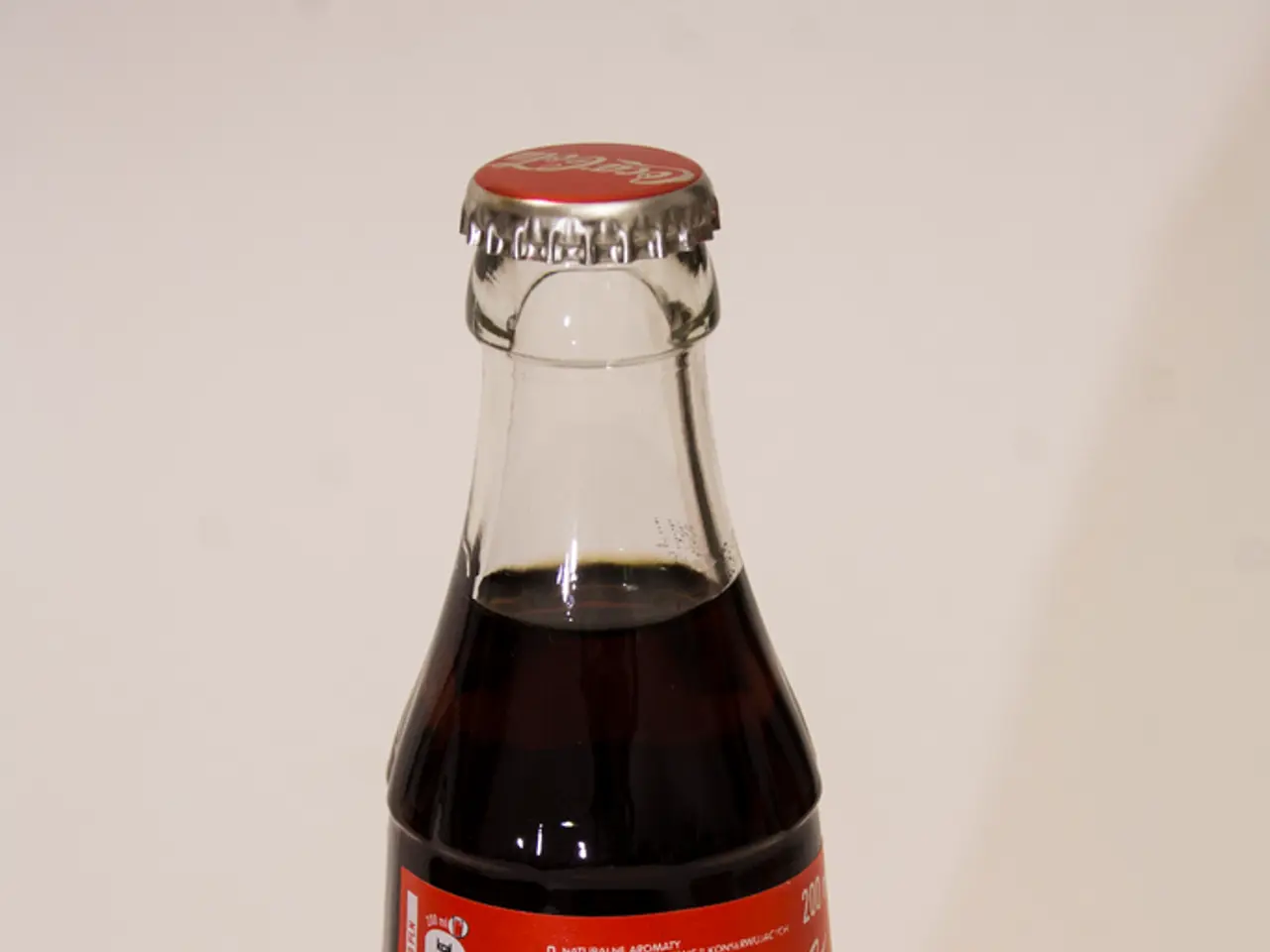Comprehensive Guide on Dehydration: Essential Information, Fluid Choices, and Useful Tips
A cool, carbonated beverage may seem like the perfect thirst quencher, but it could potentially lead to drinking less additional liquid and worsen dehydration. This is because the sensation of refreshment can trick us into thinking we're adequately hydrated when we're not.
Three common substances — alcohol, caffeine, and sugar — each have diuretic effects that contribute to dehydration by increasing urine production and fluid loss. Let's delve into how each substance affects our hydration levels.
Alcohol: A Potent Diuretic
Alcohol is a strong diuretic, making your body lose fluids faster than usual. This fluid loss reduces moisture in the body, affecting tear production and causing systemic effects like inflammation and nutrient deficiencies with chronic use. The higher the alcohol content of a beverage, the more dehydrating it can be. For instance, liquor, with up to 95% ABV, can significantly contribute to dehydration.
Caffeine: A Mild Diuretic
Caffeine also acts as a diuretic by stimulating urine production, which can increase fluid loss and risk of dehydration. Moderate intake (1-2 cups of coffee) may not cause dehydration, but excessive caffeine consumption (above 250-300 mg) can have a dehydrating effect.
Sugar: Indirectly Contributing to Dehydration
High sugar content, often found in sugary sodas and sweetened beverages, contributes to dehydration indirectly. High sugar can increase fluid loss and interfere with hydration, as sugary drinks often lack electrolytes and adequate water content. High-sugar diets can also affect hormone levels that influence fluid balance.
Together, these substances increase urine output and can disrupt the body’s fluid balance. Without adequate water intake to compensate, their consumption leads to dehydration, evidenced by symptoms such as dry eyes, decreased tear film stability, and systemic effects like fatigue and dizziness.
Practical Hydration Advice
To maintain optimal hydration levels, it's essential to be mindful of our beverage choices. Pairing these beverages with water or limiting consumption, especially for vulnerable populations like older adults who have an impaired thirst response and additional risk factors for dehydration, can help mitigate the risks associated with these substances.
Remember, hydration is crucial for all cells in the body, which use water for numerous functions like removing waste and taking in nutrients. So, let's prioritise hydration to keep our bodies functioning optimally!
[1] Mayo Clinic (2021). Caffeine: How much is too much? [online] Available at: https://www.mayoclinic.org/healthy-lifestyle/nutrition-and-healthy-eating/in-depth/caffeine/art-20048389
[2] Harvard T.H. Chan School of Public Health (2021). Caffeine: How much is too much? [online] Available at: https://www.hsph.harvard.edu/nutritionsource/caffeine/
[3] American Heart Association (2021). Sugar: How much is too much? [online] Available at: https://www.heart.org/en/healthy-living/healthy-eating/eat-smart/sugar/sugar-how-much-is-too-much
[4] National Institute on Aging (2021). Older Adults and Dehydration [online] Available at: https://www.nia.nih.gov/health/older-adults-and-dehydration
[5] National Kidney Foundation (2021). Dehydration [online] Available at: https://www.kidney.org/atoz/content/dehydration
Electrolytes play a vital role in maintaining proper hydration as they help in regulating fluid balance and ensuring nutrient absorption. In contrast, high consumption of substances like alcohol, caffeine, and sugar can disrupt this balance by increasing urine production, leading to dehydration. To ensure good health-and-wellness and proper nutrition, it's crucial to stay mindful of beverage choices, and when possible, consume water alongside beverages containing these substances to compensate for the diuretic effects and promote hydration.




